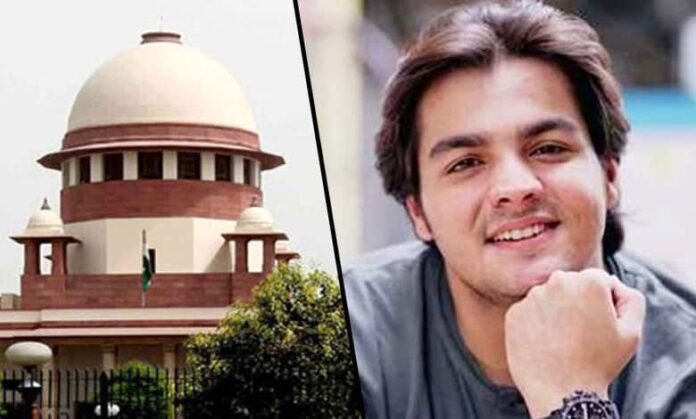The Supreme Court of India has issued notices to the Assam and Maharashtra governments in response to a petition filed by popular YouTuber Ashish Chanchlani. The petition seeks to either quash or transfer an FIR registered in Guwahati, which accuses him of promoting obscenity through an online show.
A bench comprising Justices Surya Kant and N Kotiswar Singh took cognizance of Chanchlani’s plea on Friday, February 23, 2025, and has sought responses from the respective state governments. The court also decided to club Chanchlani’s plea with another case filed by social media influencer Ranveer Allahbadia, who is facing similar allegations.
What Is the Case Against Ashish Chanchlani?
The legal troubles for Ashish Chanchlani began when the Guwahati Police registered an FIR against him on February 10, 2025, following a complaint by an individual. The charges were brought under multiple laws, including:
- Bhartiya Nyay Sanhita (BNS) – India’s newly implemented criminal law, replacing the Indian Penal Code (IPC).
- Information Technology Act – Governing digital content and online platforms.
- Cinematograph Act – Regulating films and video content in India.
- Indecent Representation of Women (Prohibition) Act – Prohibiting the portrayal of women in an obscene or derogatory manner.
The complaint alleges that Chanchlani’s online content contained obscene elements that violated these legal provisions. While the details of the specific show or video under scrutiny have not been fully disclosed, the police maintain that it breached content regulations and promoted explicit material.
Supreme Court’s Stand: Clubbing the Case with Allahbadia’s Plea
During the hearing, the Supreme Court noted that Chanchlani had already been granted bail by the Gauhati High Court earlier in the week. However, his legal counsel contended that multiple FIRs for the same content were unfair and amounted to legal harassment.
The bench acknowledged the concern and, in response, decided to club Chanchlani’s plea with that of influencer Ranveer Allahbadia, who is facing a similar legal battle over his digital content. This move indicates that the Supreme Court may examine the broader issue of legal actions against online content creators and whether such FIRs violate the principle of double jeopardy (being prosecuted twice for the same offense).
Gauhati High Court’s Interim Bail Order
On Tuesday, February 20, the Gauhati High Court granted interim bail to Ashish Chanchlani in connection with the case. The court directed him to cooperate with the investigation and appear before the investigating officer within 10 days.
While granting bail, the high court did not quash the FIR, indicating that the case will proceed as per legal protocols unless the Supreme Court rules otherwise in Chanchlani’s favor.
Key Legal Arguments in the Case
Chanchlani’s legal team has raised several important legal questions regarding the registration of FIRs against digital creators:
- Multiple FIRs for the Same Content: Filing multiple FIRs in different states for the same content is a violation of legal precedents set by the Supreme Court in past cases. The petition seeks clarity on this issue.
- Free Speech vs. Content Regulation: The case raises questions about how online content is regulated in India and whether creators are being unfairly targeted under obscenity laws.
- Ambiguity in Content Laws: Digital content laws are often subject to interpretation, and many creators argue that what is deemed obscene or offensive is subjective.
Implications for Digital Content Creators
The Supreme Court’s decision to hear Ashish Chanchlani’s plea could have far-reaching consequences for content creators across India. If the court rules in Chanchlani’s favor, it could lead to stricter guidelines on filing FIRs against online influencers and prevent misuse of obscenity laws against digital creators.
However, if the court upholds the FIR, it could set a precedent for greater scrutiny of online content, requiring influencers and YouTubers to comply with stricter regulations on censorship and content standards.
Current Status of the Case
As of now:
- The Supreme Court has issued notices to Assam and Maharashtra, seeking their responses on Chanchlani’s plea.
- The case has been clubbed with Ranveer Allahbadia’s petition, indicating that the court is considering the larger issue of multiple FIRs for digital content.
- The legal proceedings will continue, with the next hearing date expected to be announced soon.
The case against Ashish Chanchlani is not just about an individual but about the broader implications for digital content regulation in India. The Supreme Court’s intervention highlights the legal challenges faced by YouTubers and online creators under India’s content laws.
As Assam and Maharashtra prepare their responses, the outcome of this case could reshape the legal landscape for social media influencers, setting a precedent for content regulation, censorship, and legal accountability. Whether the court upholds the FIR or dismisses it, the decision will have lasting implications for digital media laws in India.


